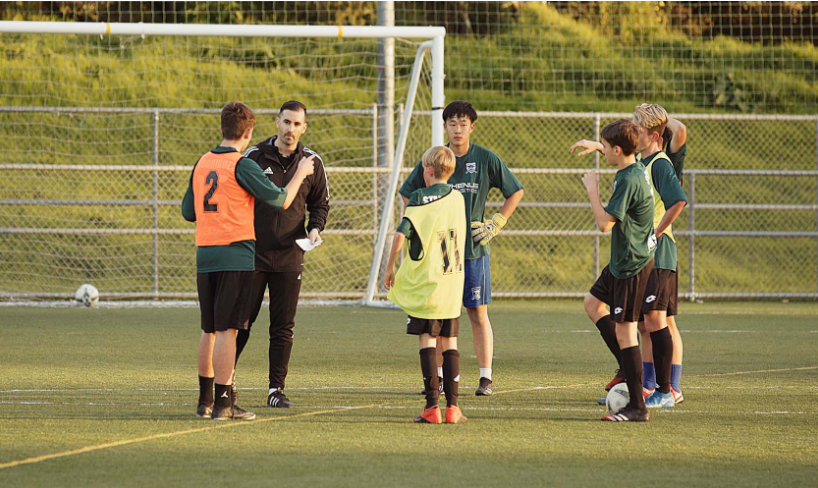A Comprehensive Guide to Studying and Playing Soccer in Europe: Opportunities for Athletes in 2025
For aspiring soccer players, Europe remains the pinnacle of the sport, offering a blend of high-level competition, world-class coaching, and unparalleled exposure. Combining academic pursuits with soccer training in Europe can be a rewarding experience, opening doors to both athletic and professional development. This comprehensive guide provides insights and practical advice for student-athletes considering this path in 2025.

Navigating the European Soccer Landscape
Europe offers diverse pathways for student-athletes. From renowned academies to university teams, the options cater to various skill levels and academic ambitions. Understanding these options is crucial for making informed decisions.
Choosing the Right Path
- Professional Academies:These academies, often affiliated with professional clubs, focus intensely on developing elite talent. Acceptance is highly competitive and requires exceptional skill. Academic integration may vary.
- University Teams:European universities offer a balance between academics and competitive soccer. While the training intensity may be lower than professional academies, university teams provide valuable experience and opportunities to compete in national and international university leagues.
- Semi-Professional Clubs:These clubs bridge the gap between amateur and professional levels. They can be an excellent stepping stone for talented players seeking to progress while maintaining academic pursuits.
Practical Guidance: Evaluating and Selecting Opportunities
Selecting the right program requires careful consideration of several factors:
- Skill Level Assessment:Realistically evaluate your soccer skills. Seek feedback from coaches and scouts to determine the appropriate level of competition.
- Academic Goals:Define your academic aspirations alongside your soccer goals. Research universities and programs that align with both.
- Financial Resources:Consider tuition fees, living expenses, and travel costs. Explore scholarship opportunities and financial aid options.
- Language and Cultural Considerations:Research the language and cultural environment of your chosen country. Prepare for potential challenges and embrace the opportunity for personal growth.
- Networking and Research:Connect with coaches, players, and alumni of programs you're interested in. Attend showcases and trials to gain exposure.
Long-Term Considerations: Beyond the Pitch
Planning for the future is essential for student-athletes.
- Career Prospects:Explore career options within and beyond soccer. Consider internships and networking opportunities to build your professional profile.
- Visa Requirements:Understand the visa requirements for studying and potentially working in your chosen country. Consult with immigration specialists to ensure compliance.
- Health Insurance and Medical Care:Secure comprehensive health insurance coverage. Research the local healthcare system and access to medical facilities.
FAQ: Frequently Asked Questions
What are the age requirements for joining European soccer academies?Age requirements vary, but academies typically accept players from ages 12-18.Do I need to speak the local language to study and play soccer in Europe?While some programs offer English-taught courses, learning the local language can significantly enhance your experience and integration.How can I increase my chances of getting a soccer scholarship?Creating a strong highlight reel, attending showcases, and contacting coaches directly can increase your visibility and scholarship opportunities.What are the visa requirements for student-athletes in Europe?Visa requirements vary by country. Consult the embassy or consulate of your chosen country for specific information.Are there opportunities for female soccer players in Europe?Yes, women's soccer is rapidly growing in Europe, with increasing opportunities for female athletes at all levels.Disclaimer:This information is for informational purposes only and does not constitute professional advice. Consult with relevant experts for personalized guidance.